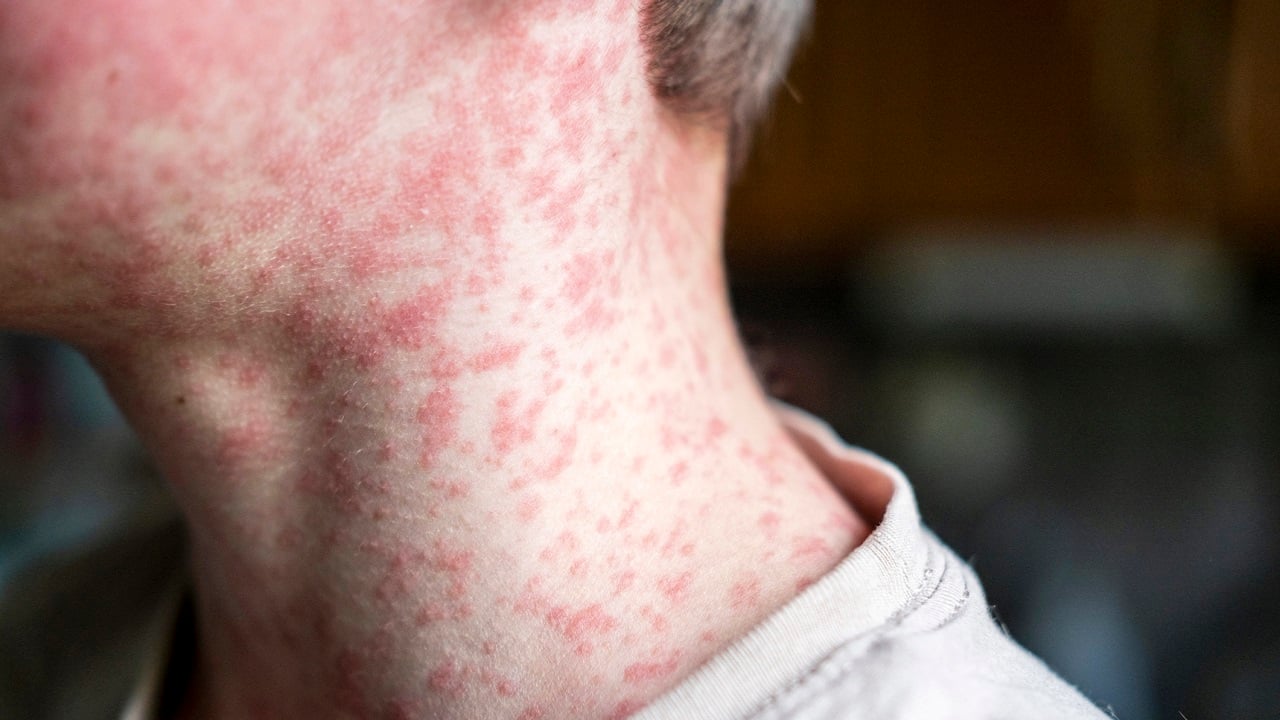Measles is a highly contagious virus that can cause serious complications, especially in young children, pregnant women, and people with low immunity. Measles has sometimes gone by other names, including rubeola, “hard measles” and “red measles.”
Although measles was declared eliminated from the United States in 2000, cases are now increasing in several states.
In this Q&A, Francesca Torriani, MD, infectious disease specialist at UC San Diego Health, addresses common questions about measles symptoms, treatment options and prevention measures.
What are the symptoms of measles?
Early symptoms include a high fever that lasts 4 to 7 days, and cough, runny nose or red, watery eyes. Small white spots often appear inside the cheeks. This is followed by a reddish-brown rash that starts at the head and spreads down to the toes.
Other symptoms may include sore throat, hoarseness, enlarged lymph nodes, muscle pain, sensitivity to light and earache.
When should someone seek medical attention?
If you think you or a loved one has the measles, you should immediately contact your physician and keep the person away from others. Incubation is seven to 14 days. The public health department will be alerted immediately to prevent further transmission.
How is measles spread?
Measles is highly contagious through the air. Just one particle from a sneeze or cough can infect a healthy person who is not immune (or not vaccinated). Nine out of 10 people who don’t have antibodies (immunity) to the infection will develop measles if they are exposed. The virus can stay in the air for up to two hours.
Are there treatment options for the measles?
There’s no specific treatment for measles, but it can generally be managed at home with lots of rest, fluids, and medication, such as acetaminophen or ibuprofen for fever, aches and pains. Gargling with salt water can soothe a sore throat.
How important is vaccination?
The MMR (measles, mumps, rubella) vaccine provides the best protection against infection. The first dose of MMR is given at age 12 to 15 months, and the second at 4 to 6 years old. There is 93% protection two weeks after the first dose and 97% protection after the second one.
The 3% of vaccinated people who get measles are less infectious, have milder symptoms, and have fewer chances of complications, especially in children younger than 5. Measles complications can include ear infections, diarrhea, and more severe problems, like pneumonia or inflammation of the brain (encephalitis), which requires hospitalization and can be fatal.
Adults born after 1957 should get one or two doses if they never had measles or don't have a written record of vaccination, according to the Centers for Disease Control and Prevention (CDC). The MMR vaccine is available from your primary care physician or pediatrician, at many pharmacies and from your local health department.
Primary Care
For expert guidance on vaccinations tailored to your health needs, reach out to your primary care provider. Our expanding primary care network includes more than 650 providers in San Diego, Riverside and Imperial counties.


